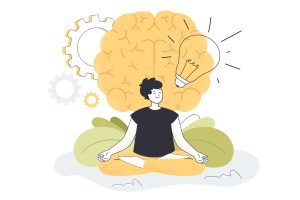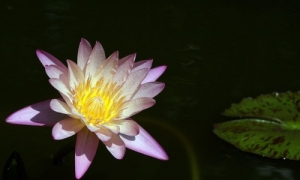
How To Use Mindfulness During Stressful Situations
How To Approach Mindfulness During Stressful Situations? In today’s times, mindfulness practices have become pretty well known as stress management practices. Even if one does

How To Approach Mindfulness During Stressful Situations? In today’s times, mindfulness practices have become pretty well known as stress management practices. Even if one does

What is mindfulness meditation? Mindfulness is a beautiful practice that helps us become rooted in life. It involves getting our minds back to the present

Origins of Mindfulness: Religion, Philosophy, or Psychology? Mindfulness is seen to have its roots in ancient Eastern, primarily Buddhist, traditions. However, there are enough references in

Many of us encounter moments in life where forgiveness feels impossible. We might hold onto contempt or resentment towards someone, struggling to understand their actions

Often just like any other skill, once people start meditating they try to master meditation. They want to excel at it. They imagine themselves becoming quiet

Stress is really an overused word and yet it is a defining aspect of our current, modern life. When you are in the loop of

As December sets in, everything around you oozes of cheer, joy and happiness. Daily life seems to get a boost of excitement when you see that preparations for the celebrations have begun all around – be it Christmas, New Year’s or weddings. However, amidst all the December enthusiasm, there may be people who are feeling low, depressed and lonely.

Your senses are your window to the world; you experience life through your senses. Yet, in your everyday routine, you remain busy in trying to make meaning of whatever you see, hear, smell, taste and touch. This is necessary and an essential part of survival! However, if you think about it, every sensory experience is so rich on its own.
Keeping this in mind, this blog describes a mindfulness exercise that involves paying attention to one sense at a time.

I recently wrote an article on why our minds do not like to remain in the here and now. I now move on to elaborate how we can better manage to stay in the present. Read each step slowly and mindfully 🙂

Our lives today are full of noise – auditory, visual, tactile, cognitive etc. From honking cars, to bright neon billboards, uncomfortably tight clothing to endless worries, there is an overload of stimulus input from all these modalities. This understandably overworks and gradually exhausts our sense organs, our mind, our body and our very nerves.

We specialize in combining psychotherapy with deep wellness practices like mindfulness and meditation and creating a customized mental health plan for individuals and organisations.
We specialize in combining psychotherapy with deep wellness practices like mindfulness and meditation and creating a customized mental health plan for individuals and organisations.

A young woman from another country moved with her family to live for one year in a town near the monastery. When, in the course of the year she discovered the monastery, she would periodically visit to have discussions with the Abbess. The Abbess introduced her to meditation, which became very meaningful for the young woman.
When the family’s year-long stay was drawing to an end, the young woman asked the Abbess, “In my country there is no Buddhism and no one has even heard about meditation. How can I continue to learn and deepen the practice you have started me on?”
The Abbess said, “When you return home ask far and wide for who, among the wise people, is recognized as having the greatest ability to listen. Ask that person to instruct you in the art of listening. What you learn about listening from such a person will teach you how to further your meditation practice.
― Gil Fronsdal, A Monastery Within: Tales from the Buddhist Path